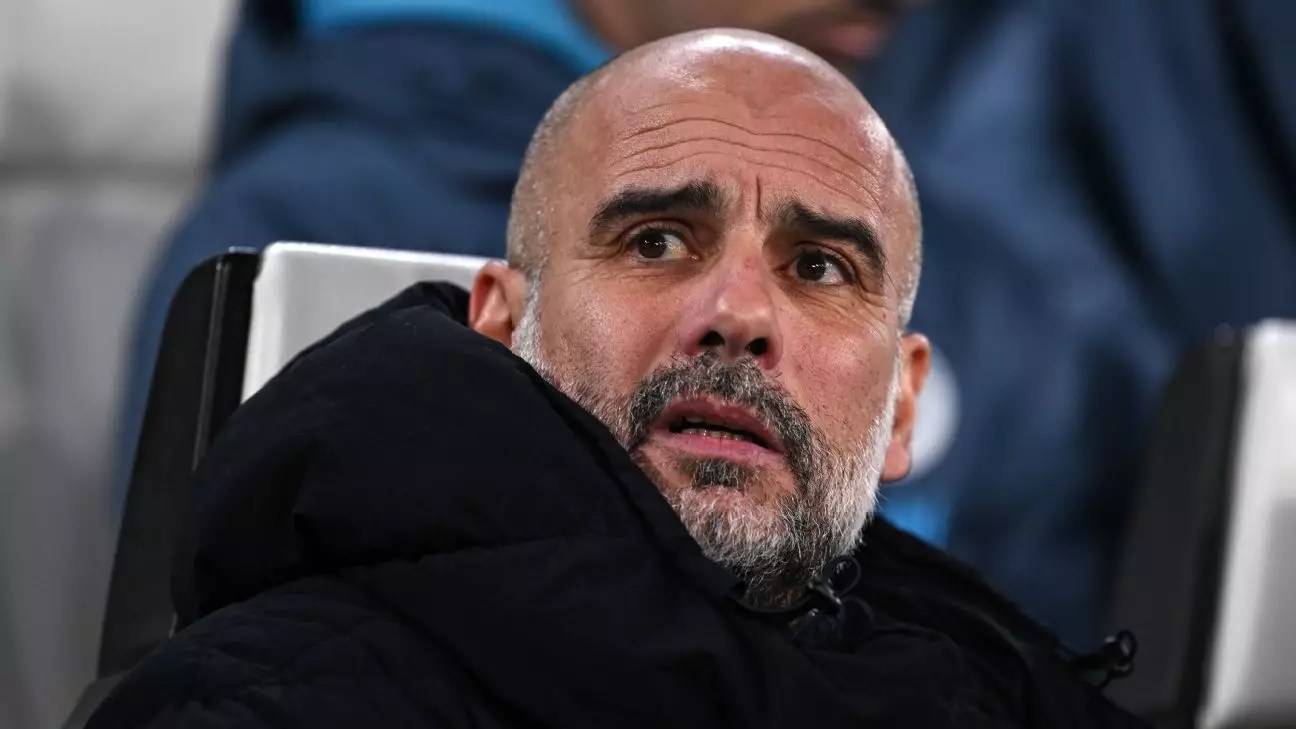Manchester City’s manager Pep Guardiola is confronting an unexpected downturn in form as the Premier League champions navigate a challenging patch in their season. With a disheartening record of seven losses in their last ten games across competitions, the pressure is mounting as City approaches a crucial derby against rivals Manchester United. This alarming slump reflects not just on-field performance, but also raises questions about the depth and resilience of Guardiola’s squad. However, the prospect of reinforcements in the subsequent January transfer window highlights the management’s commitment to restore the team’s competitive edge.
According to recent reports, City is prepared to invest in new talent, specifically eyeing players like Martín Zubimendi and Bruno Guimarães, should the current trends persist. This willingness to penetrate the transfer market is underpinned by impressive financial results—one that showcases a record revenue of £715 million and a transfer profit of £139 million. This financial health not only signals the club’s ambition but also its capability to navigate the inflated dynamics of the transfer market. Despite this, Guardiola remains pragmatic, acknowledging that financial muscle does not equate to being able to sign any player at will.
Guardiola’s sentiments reflect his desire to have the squad that initiated the season intact. During a recent news conference, he expressed affection for his existing players, emphasizing, “I always said I want these players, not new ones.” His statement conveys a sense of loyalty and trust in his current roster, opting for stability over an overhaul. However, he simultaneously noted that there may come a time when fresh talent is necessary, which illustrates the delicate balance between nurturing current players and recognizing their limitations in a high-stakes environment.
The juxtaposition of Guardiola’s desire to maintain his squad against the potential necessity for new players encapsulates the ongoing challenge of managing in elite football. While the financial backing from ownership allows for potential acquisitions, Guardiola remains acutely aware of the risks involved with integrating new talent partway through a season. Such decisions can disrupt team chemistry and complicate tactical cohesion, factors that could further hamper performance rather than enhance it.
As Manchester City stands at a crossroads, the upcoming derby against Manchester United will serve not only as a critical match for points but as a litmus test for the team’s current strategy and emotional fortitude. While Guardiola appears confident in his existing players, the undercurrents of potential change—and the promise of new signings during the January window—suggest that the club’s leadership is prepared for both immediate and future challenges. Balancing player loyalty while adapting to competitive demands depicts the fine line that defines elite football management, especially under the glaring spotlight of constantly changing expectations.

